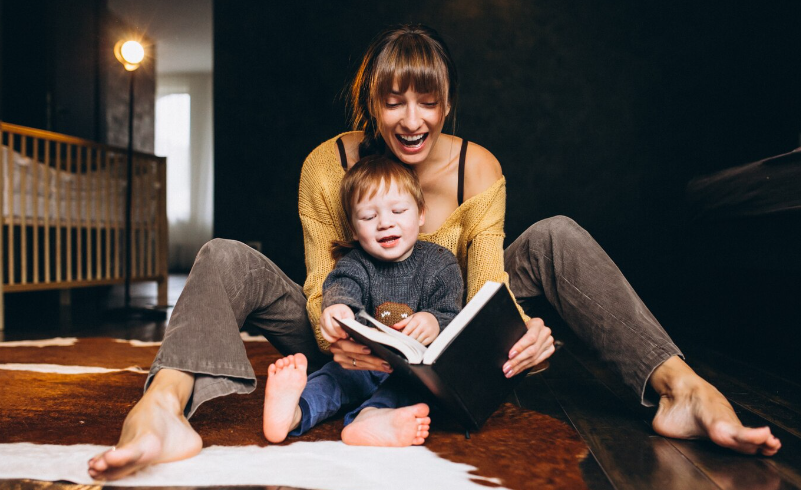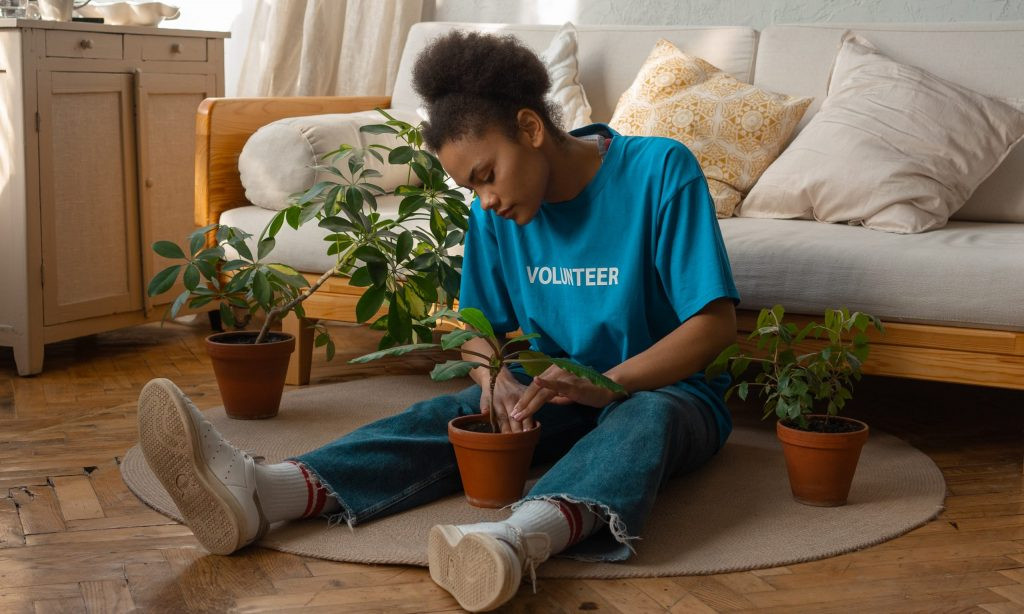Why Toddler Reading Time Is So Important and How to Get Started

©️ senivpetro / Freepik
Bringing life into the world is a big challenge in itself, however, your baby needs even more taking care of, now that they are part of this world. Your baby or toddler is definitely listening to everything you are saying throughout the day and that is how they develop and grow further. This is exactly why it is so important to use this listening time to its full capacity. But, how can you do that? There is one thing that most parents love to do with their kids, which is known as toddler reading time. What is toddler reading time, and why is it actually so important to utilize? Let’s find out together!
What is Toddler Reading Time?
“Toddler reading time” typically refers to a designated period during which a parent or caregiver reads books to a toddler. This activity is important for a child’s early development, as it helps promote language and literacy skills, fosters a love for reading, and provides a bonding opportunity between the child and the adult.
During toddler reading time, parents or caregivers often select age-appropriate books with colorful illustrations and simple text. They read aloud to the toddler, pointing out pictures, asking questions, and engaging the child in conversation about the story and the characters. This interactive approach helps toddlers develop vocabulary, comprehension skills, and a better understanding of the world around them.
How Long Does Toddler Reading Time Usually Last?
The specific duration and frequency of toddler reading time can vary from family to family, but it’s generally recommended to make reading a regular part of a toddler’s daily routine to reap the maximum benefits. Reading together can be a delightful and educational experience for both the child and the adult involved.
How to Get Started with Toddler Reading Time?
Getting started with toddler reading time can be a rewarding experience for both you and your child. Here are some steps to help you begin:
1. Choose Age-Appropriate Books
Select books that are suitable for your toddler’s age and developmental stage. Look for colorful board books with simple, engaging illustrations and easy-to-understand text. Consider themes that your child might find interesting, such as animals, shapes, or bedtime stories.
2. Create a Cozy Reading Space
Set up a comfortable and inviting reading area in your home. This could be a corner of a room with a soft rug, pillows, and a small bookshelf for storing books. Make it a special place where you and your child can enjoy reading together.
3. Establish a Routine
Choose regular times for reading, such as before naptime or bedtime, to create a reading routine. Consistency helps children know what to expect and look forward to reading time.
4. Engage Your Toddler
Encourage your toddler’s participation during reading time. Let them choose the book they want to read or ask them questions about the story, characters, or pictures. Allow them to turn the pages and point to objects in the book.
5. Be Animated
Use expressive facial expressions, varied tones of voice, and animated gestures to make the story come alive. This will capture your toddler’s attention and make the reading experience more enjoyable.
6. Be Patient
It’s normal for toddlers to be wiggly or easily distracted during reading time. Be patient and understanding if your child wants to move around or explore the book in their own way. The goal is to create a positive association with reading.
7. Expand Beyond Books
Reading doesn’t have to be limited to traditional storybooks. You can also read magazines, picture dictionaries, or even labels on household items. This helps your child develop literacy skills in various contexts.
When Should You Read to Your Toddler?
Reading to toddlers is an essential activity for their development, ideally done daily, and at regular times like before naps and bedtime to establish a reading routine. However, you can read whenever your child shows interest. Holding your toddler in your lap during reading fosters a sense of security, happiness, and relaxation, demonstrating your full attention and encouraging participation.

Additionally, toddlers enjoy independence, so offer them a choice of three or four books and let them pick one, praising their selection. Involve them in the reading process by allowing them to turn pages and seek their assistance in finding objects on a page. Encourage your child to finish sentences in books with familiar or repetitive phrases or rhymes, as this engagement can make reading even more enjoyable for them. This interactive approach not only enhances language and literacy skills but also strengthens the parent-child bond through shared storytelling experiences.
Why is Toddler Reading Time So Important?
Reading to children offers numerous benefits, even if the scene isn’t always as idyllic as you might imagine. Here are some of the advantages:
- Offer Bonding Times
Reading provides a special opportunity for parents or caregivers to connect with their children. It’s a calming way to spend quality time together and create a sense of security and closeness.
- Raise Listening Skills
Listening to stories read aloud helps children develop their comprehension and listening skills. These skills are fundamental for later reading and cognitive development.
- Offer Cognitive and Language Development
Even infants benefit from being read to. Studies have shown that babies exposed to reading and conversation with caregivers tend to have higher language skills and improved cognitive development, including problem-solving abilities.
- Provide Expanded Vocabulary
Reading exposes children to a broader range of words and concepts than everyday conversations do. This exposure enhances vocabulary and language development.
- Allow Greater Attention Span
Although toddlers may initially be restless during reading, regular reading sessions can help improve their attention span and memory retention over time.
- Raise Creativity Levels
Fictional stories stimulate a child’s imagination and creativity by introducing them to fantastical worlds and ideas beyond reality.
- Give Out Life Lessons
Books provide a platform for discussing real-life situations in an age-appropriate manner. Children can learn about common experiences, such as starting school or going to the dentist, and gain insights into how to handle these situations.
- Offer Social and Emotional Development
Reading can teach children how to cope with challenging or emotional experiences. Reading stories that address these topics can open up conversations and help children understand their feelings are normal.
What Happens if You Don’t Utilize This Time?
If you don’t utilize toddler reading time, you may miss out on several important developmental and educational benefits for your child. Reading to toddlers and young children offers numerous advantages, and neglecting this opportunity can have potential consequences. This includes:
- Language Development: Reading plays a crucial role in building a child’s vocabulary, comprehension skills, and language development. Without regular exposure to books and spoken language, a child may lag behind in language skills, which can affect their ability to communicate effectively.
- Cognitive Development: Reading helps children develop cognitive skills such as critical thinking, problem-solving, and memory. Without regular exposure to stories and information found in books, a child’s cognitive development may not progress as effectively.
- Literacy Skills: Early exposure to books and reading sets the foundation for literacy. Children who miss out on reading experiences may have difficulty with reading and writing when they enter school.
Will you be testing toddler reading time with your kid soon? Let us know if it works out for you in the comments below!
You might also want to read: This Single Factor Can Change Your Child’s Life


